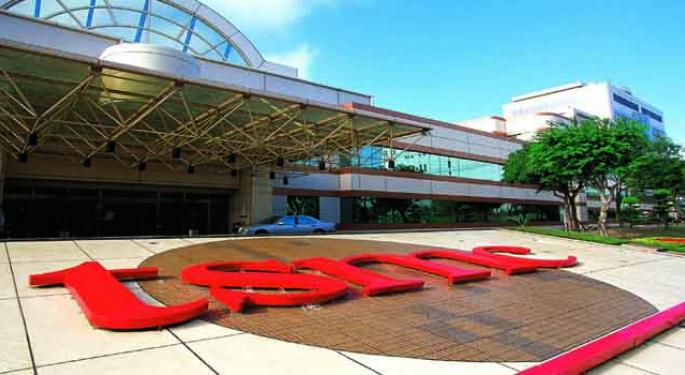Apple Supplier TSMC's Q1 Profit Jumps 19% Amid Chip Shortage
Photo by iphonedigital on Flickr
Taiwan Semiconductor Manufacturing Co Ltd (TSM), the world’s largest contract chipmaker, on Wednesday reported a 19.4% rise in the first-quarter profit helped by strong demand for semiconductor chips from personal computers, smartphones, and automobile sectors.
What Happened: The Taiwanese contract supplier that counts Apple Inc (AAPL) and Nvidia Corp (NVDA) among its customers reported a quarterly net profit of T$139.7 billion ($4.93 billion) for the three months ended March, compared with the T$116.99 billion ($4.13 billion) reported in the same quarter a year ago.
The company recorded a revenue of T$362.4 billion ($12.8 billion) and guided to a second-quarter revenue in the range of $12.9 billion to $13.2 billion.
Bloomberg News reported earlier this month that TSMC plans to spend $100 billion over the next three years to expand its chip fabrication capacity.
Why It Matters: A global semiconductor chip shortage has boosted demand as automakers, smartphone, and appliance makers scramble to secure supplies.
TSMC said in an earnings call, as reported by Bloomberg, its automotive customers can expect chip shortages to start easing next quarter but the shortages will still continue to last throughout 2021 and potentially into next year too.
Price Action: TSMC shares traded 0.5% higher in the pre-market session on Thursday after closing 0.35% lower at $120.84 on Wednesday.
Disclaimer: © 2021 Benzinga.com. Benzinga does not provide investment advice. All rights reserved.





This shortage and the resultant shifts in production are due to incorrect analysis of the demands causing unfortunate decisions in several long term plans and programs. The fact is that the production of the much more complex chip devices is not something that can be quickly changed. Setting up and adjusting that production capability is a very complex operation that can not be rushed. Making matters more challenging, many of the complex "chips" are single sourced, meaning that there is no alternative source available.